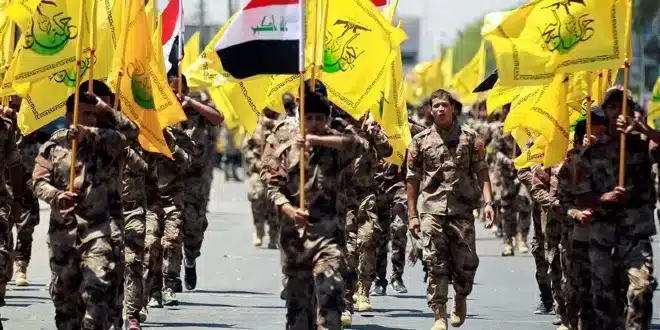The U.S. has recently targeted a network of businesses and individuals spanning six countries, including a money exchanger and various firms, due to their roles in supporting Iran’s military operations as well as the Houthi militants in Yemen and the Hezbollah group in Lebanon. The sanctions, implemented by the Treasury Department’s Office of Foreign Assets Control, encompass six companies, two tankers, and a money exchanger located or registered in countries such as Liberia, India, Vietnam, Lebanon, and Kuwait, all accused of providing substantial support to these groups.
These groups, particularly Hezbollah and the Houthis, have intensified their attacks amidst the ongoing conflict between Israel and Hamas in Gaza, raising international fears of the conflict spreading throughout the Middle East. Hezbollah has been engaging in frequent skirmishes with Israeli forces along Lebanon’s southern frontier, resulting in significant displacement and insisting on halting rocket attacks into northern Israel only if a ceasefire is established in Gaza. Similarly, the Houthis have continued to launch drones and missiles targeting maritime routes in the Red Sea as a tactic to compel Israel to cease its military activities in Gaza.
Additionally, the U.S. Treasury announced sanctions against individuals and entities aiding the Syrian government in evading sanctions and involved in distributing Captagon, a highly addictive stimulant. Among those sanctioned are Taher al-Kayali and his firm Neptunus LLC, implicated in attempting to smuggle Captagon into Europe, and Mahmoud Abulilah Al-Dj along with his enterprises, linked to drug trafficking activities and sanctioned Syrian airline Cham Wings in Libya.
Captagon production, mainly rooted in Syria and Lebanon, involves smuggling millions of pills to various regions, including Gulf countries and Europe, allegedly benefiting individuals close to Syrian President Bashar Assad and Hezbollah. The lucrative trade has generated substantial revenue, prompting efforts by countries such as Jordan and Saudi Arabia to curb its flow.
The sanctions also targeted the Syria-based Maya Exchange Company, Aleksey Makarov of the Russian Financial Cooperation Bank, and Muhammad ‘Ali Al-Minala of the Syrian central bank for facilitating financial transactions benefitting the Syrian regime. Other sanctions were placed on STF Logistic and Grains Middle East Trading, along with its CEO, for their roles in supporting the Syrian government financially and in resource extraction. These measures reflect ongoing international efforts to address the complex web of support for conflict-related activities in the Middle East and the Syrian government’s attempts to bypass global sanctions.


